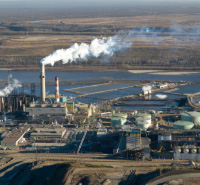I mean really, a whole organization dedicated to the safe cultivation of lawns? But it is true.
http://www.safelawns.org/blog/
PBS Program to Showcase Glenstone’s Organic Lawn
The natural lawn care movement in the United States will get a major boost in August when Growing A Greener World, hosted by Joe Lamp’l, showcases the organic lawn renovation at Glenstone, the modern art museum in Potomac, Md. The episode, estimated to be watched by nearly a million people nationwide in its first run, is scheduled to be aired in late August.
SafeLawns was on-hand, both to observe and to participate in the segment. We have been the lead consultants on the project since its inception in July of 2010 and the Growing a Greener World team is the first film crew to be allowed on the 160-acre Glenstone property, which has not had any synthetic chemicals used on its grounds since our arrival.
The two-day shooting session began in dreary, cold and wet conditions on Monday that ultimately led the crew indoors to the College Park laboratory of Dr. Mark Carroll and Dr. Thomas Turner, the two University of Maryland scientists who are working on an organic lawn research project with SafeLawns and Glenstone. The following day in Potomac, however, temperatures were in the 60s under brilliant blue skies.
“When you look at this place, the only thing you can say is ‘Wow,’” said Lamp’l, who is in his third season with this show.
:}
Good there and read. More tomorrow.
:}






